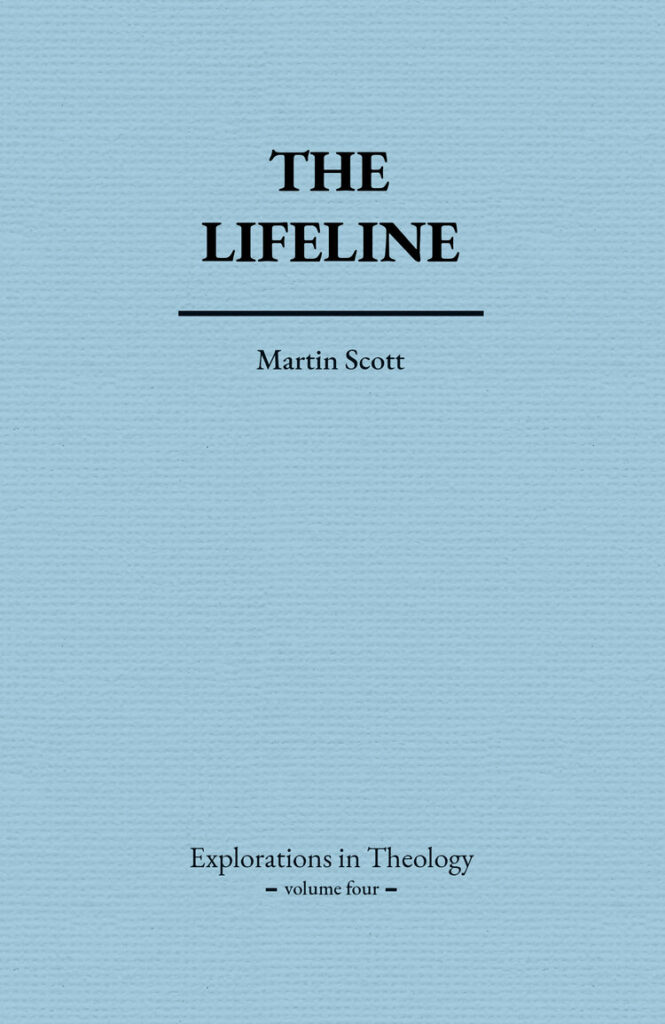Always interesting to read ancient literature (OK made me sound as if I am very well-read… I simply mean the Bible!!) and think about what world view is being expressed. Normally ancient world-views of (say) cosmology are not ‘corrected’ but the conclusions drawn about God are certainly not simply a mirror of the other contemporaneous cultures. Creation is like that… even more basic than a flat earth (thank God for the firmament (sky) that stops the water leaking through – not a 2023 weather forecast framework), but the God revealed is not the god(s) who has humans providing food for the gods… other way round. God is for us; we are not here to appease this God. Jumping forward we read that Paul in Athens gave some amazing perspectives:
From one ancestor he made all peoples to inhabit the whole earth, and he allotted the times of their existence and the boundaries of the places where they would live, so that they would search for God and perhaps fumble about for him and find him—though indeed he is not far from each one of us. For ‘In him we live and move and have our being’; as even some of your own poets have said,
‘For we, too, are his offspring.’ (Acts 17: 26-28).
One humanity: maybe Paul believed in a literal ‘Adam and Eve’, maybe he did and we don’t have to. If so it would not make us smarter than Paul, simply that we live in different eras. It is not what we know, it is how we live that is the measure. Whatever we believe about (scientific) origins, there is one humanity. Hence all war is civil war.
God is close to all, and even stronger than that, is that of the boundaries and times are not in place in order that God would not be found. ‘So that… find him’. We do not have to deny any insight (revelation?) about God in other faiths to affirm the uniqueness of Christ. Christ is final – Heb. 1 – and he is not simply the way to God but the way through which we know who this God is, that this God is in familiar relationship with us, for Jesus is ‘the way… to the Father‘.
Boundaries… Paul is clearly reflecting on a foundational understanding from Deuteronomy, where we read:
When the Most High apportioned the nations,
when he divided humankind,
he fixed the boundaries of the peoples
according to the number of the gods;
the Lord’s own portion was his people,
Jacob his allotted share (Deut. 32:8,9).
We have 2 manuscript strands – according to the number of the ‘gods’ (sons of God: angelic) or sons of Israel. The former seems stronger, but regardless we have God fixing the boundaries and this is clearly what Paul is acknowledging. However…
He speaks these words in the context of the Imperial rule of Rome. That which establishes its own boundaries (termed oikoumene) and one that ignored previous boundaries. Is Paul now acknowledging that Rome’s universal boundary is the one God has established and set in place, or is he suggesting that at the same time as the Empire sets its boundaries that we should be looking for the boundaries that people inhabit so that they might (stumble around – yes, but) find God?
We see artificial boundaries that have been set – Africa set by Europe; colonial rule drawing arbitrary boundaries in many places. I reflect back some 20+ years ago I was given a ceremonial arrow by a native American chief to give me safe travel in and out of ‘north America’. Those first-nations did not recognise the 49th parallel, knew their own territory, and sought to outwork what it meant that fellow-nations occupied other territory within the wider land (not trying to idealise the situation; am well aware that they did not all co-habit singing ‘kumbaya’ around a shared camp fire).
[I appreciate that there are various views about ‘Brexit’, but to use the Bible on ‘nations’ to suggest that God wants to give ‘sovereignty’ to the UK for example is to suggest that ‘nation’ and ‘nation-state’ are the same I think is to miss what is going on…]
I am playing with the idea that we have boundaries at two levels. Ones that are imposed… no problem working within those – Paul worked within the Empire and simply used the Roman names for the various territories where he travelled; and perhaps boundaries that are from the land – if from the land then more likely to be ‘from God’.
God is at work… and at work in structures that are far from perfect. Maybe the EU weakens the pull to arrogant sovereignty. Maybe it suggests we are one people.
Maybe the various pulls for independence – the breaking up of the UK – is an imperfect shadow of a God movement that emphasises there are boundaries that cannot be imposed through powers that say so elsewhere.
Maybe the future will be more based in the locality, in the city, in the regions. Maybe that might help uncover God-boundaries, that will align us more with ‘the sons of God’ and enable a greater amount of positive stumbling so that God might be found?
All very speculative, but I suspect something is going on. If so we should expect all kinds of disputes over boundaries.
And back to Paul… he spoke those words into the one-boundary scenario of the Roman Empire. No need to fear Imperial power; but the need to affirm God-boundaries without needing to impose them. They will be discovered, and I am sure there are many overlapping boundaries.


